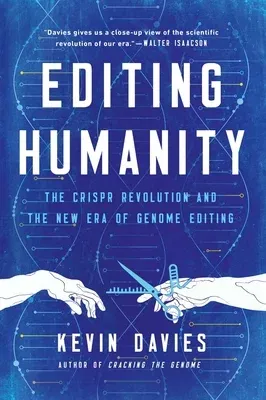One of the world's leading experts on genetics unravels one of the
most important breakthroughs in modern science and medicine.
If our genes are, to a great extent, our destiny, then what would happen
if mankind could engineer and alter the very essence of our DNA coding?
Millions might be spared the devastating effects of hereditary disease
or the challenges of disability, whether it was the pain of sickle-cell
anemia to the ravages of Huntington's disease.
But this power to "play God" also raises major ethical questions and
poses threats for potential misuse. For decades, these questions have
lived exclusively in the realm of science fiction, but as Kevin Davies
powerfully reveals in his new book, this is all about to change.
Engrossing and page-turning, Editing Humanity takes readers inside the
fascinating world of a new gene editing technology called CRISPR, a
high-powered genetic toolkit that enables scientists to not only
engineer but to edit the DNA of any organism down to the individual
building blocks of the genetic code.
Davies introduces readers to arguably the most profound scientific
breakthrough of our time. He tracks the scientists on the front lines of
its research to the patients whose powerful stories bring the narrative
movingly to human scale.
Though the birth of the "CRISPR babies" in China made international
news, there is much more to the story of CRISPR than headlines seemingly
ripped from science fiction. In Editing Humanity, Davies sheds light
on the implications that this new technology can have on our everyday
lives and in the lives of generations to come.

